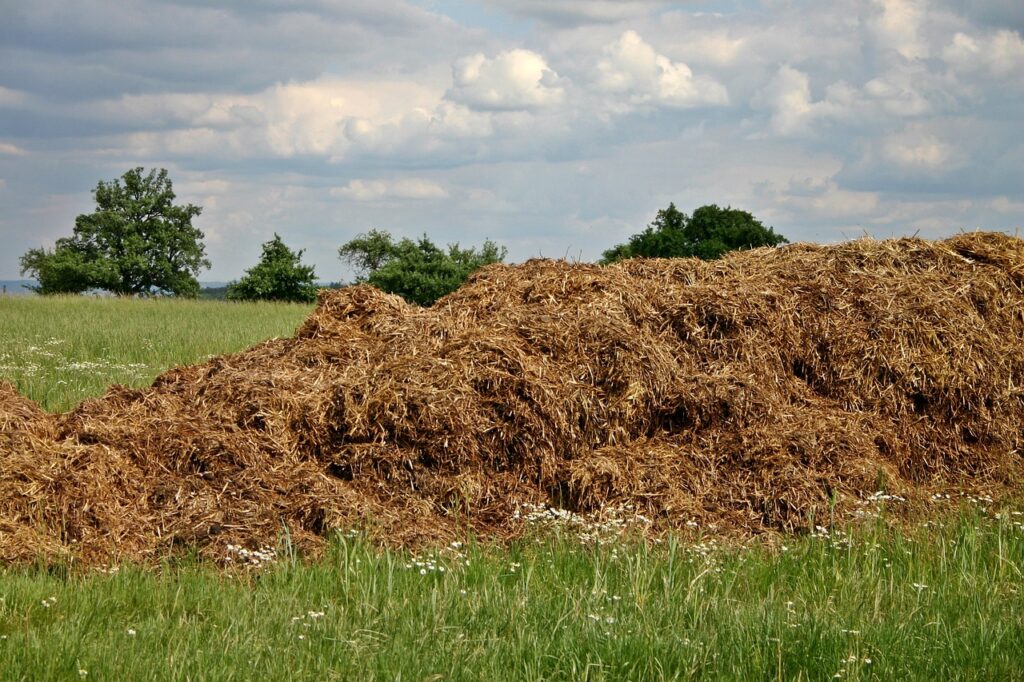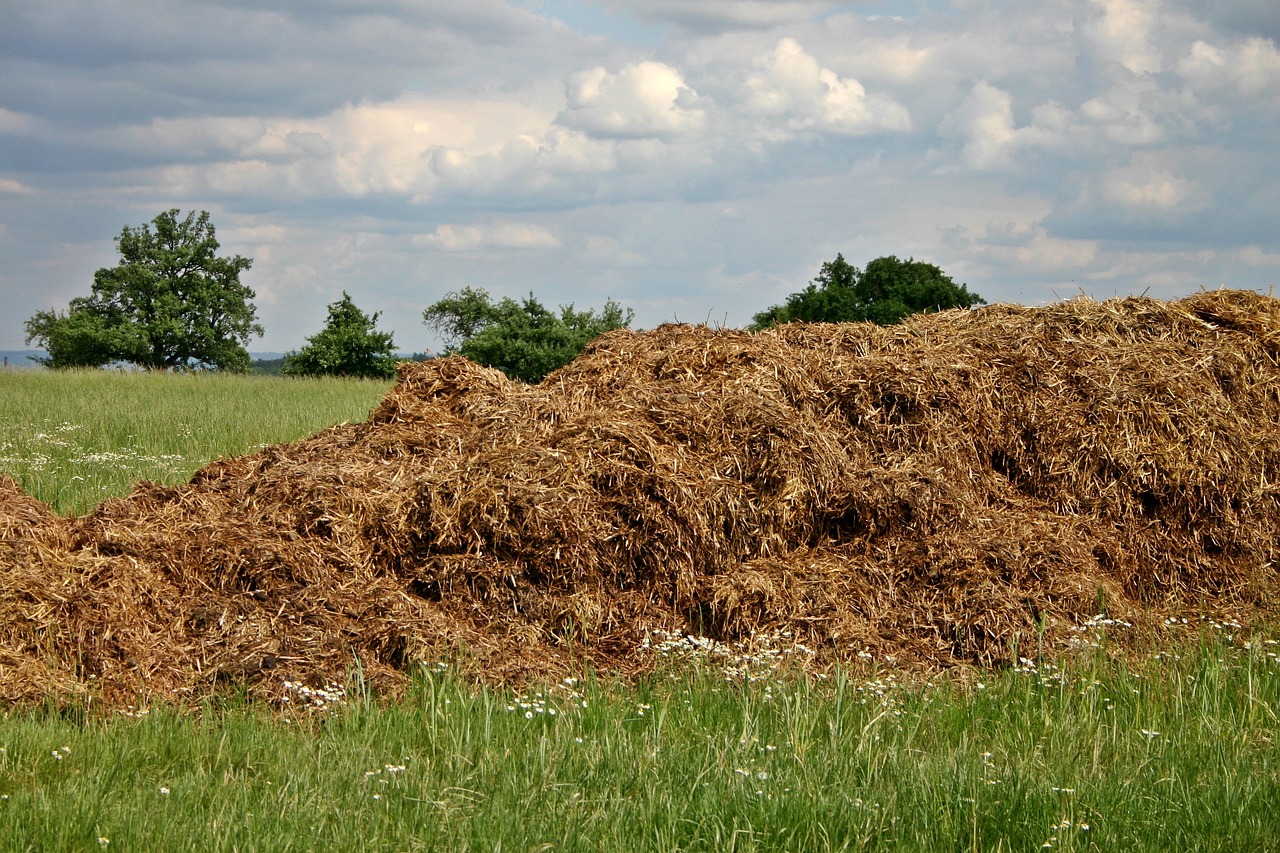Fertilizer is a substance that every plant needs, if not to boost flowering and fruit production then at least to maintain healthy growth. Thyme is not excessively greedy when it comes to fertilizer but it will benefit from the occasional nutrient offering.
The best fertilizers for thyme are bone meal, manure, vermicompost, fish emulsion, chicken litter. Best inorganic fertilizers are:
- Espoma Organic Concentrated Indoor Plant Food – Indoor Plant Fertilizer
- Osmocote Smart-Release Plant Food Plus Outdoor & Indoor
- Shake ‘N Feed Flowering Trees and Shrubs Plant Food
- Miracle-Gro Indoor Plant Food (Liquid)

Fix your thyme: How to Fix Thyme Leaves Turning Brown?
Read on to find out more about thyme fertilizers, we have listed both the organic and inorganic fertilizers options available to you, here.
Types Of Organic Fertilizer
Organic fertilizers are best for thyme as they offer nutrients using a natural material that does not have artificial materials and nutrients in it. These fertilizers are available in their raw state and do not need further treatment.
1. Bone Meal
As horrifying as it may sound, bone meal is really made from animal bones. The bones undergo cleaning and heating before eventual powderization. This meal is useful as a nutrient rich fertilizer for plants.
It is a good source of phosphorus, calcium, Potassium and nitrogen and it also contains other nutrients that may be necessary for your thyme to take in, in small amounts.
The high amounts of phosphorus help the thyme in terms of root development, as well in developing flowers. It also helps the plant cells in photosynthesis, and in the overall development of the plant.
2. Manure
Manure contains nutrients such as nitrogen, potassium and phosphorus, each of which are highly beneficial to all plants, including thyme (in limited amounts).
Together they aid in the development of the plant by natural process as well as the development of flowers and if applicable fruits in the case of fruit and vegetable plants.
However manure does not only benefit the plant, it helps the soil too. It helps to improve the soil structure as well as helps to increase the fertility of the soil. Microorganisms thrive in soils that have manure present in them. Lastly, manure also helps in the retention of water in the soil.
The term ‘manure’ is actually very broad and can be expanded to include a larger meaning. Currently there are three categories of manure; compost, green manure, and animal manure. Let’s take a closer look at each one of these manures.
a. Compost
Compost is no stranger to people, who are either gardeners or farmers being one of the most common natural fertilizers for plants globally even for thyme. Composting has a majorly composition of plant matter that is decaying.
The plant matter in compost mostly includes all decomposable plant matter such as leaves, straw, weeds, and vegetable and fruit waste from the kitchen. Microbes such as thermophilic bacteria break down the waste. Thus helping the compost be rich in minerals and nutrients.
But, the components of compost are not hard and fast and it also contains waste from animals, especially cow dung. Some animal waste/dung are nutrient rich and a great fertilizer to use on your thyme. It contains bacteria that will help your plant grow and improve the soil condition.
Compost is easy to make at home and is a great way to use your organic waste at home or farm if you have one. If you are not in a position to make your compost yourself, such as if you live in an apartment, you can easily buy it at your local garden store.
b. Green Manure
The concept of green manure is not applicable everywhere but when growing herbs on a large scale. Using green manure involves planting certain plants that will exude nutrients back into the soil and thus elevating the soil fertility in an area of soil or land.
The best example of green manure is legumes which have nitrogen fixing roots. Specialized nodes on the roots of these legumes combine with Rhizobia bacteria to create the mineral most needed by every plant.
Apart from this, other materials qualifying as part of green manure to be embedded in the soil are seaweed, spent grain (from beer brewing), rumens contents (from slaughtered ruminant animals).
c. Animal Manure
Animal manure is most common as a fertilizer specifically used on farms as sourcing the materials is most easy there. The simple reason being access to a range of animal faces which make up animal manure. As gross as it sounds these waste products are fertilizer magic!
- Cow dung – Most important animal manure, rich in Nitrogen and organic Carbon
- Sheep manure – High amounts of Nitrogen and Potash
- Chicken manure – Phosphate and Nitrogen in high concentrations
But, not all animal manure makes for a nutrient-rich meal for your thyme plants! Horse and pig manure are unsuitable for mixing into your compost mix. Horse manure is not appropriate as the horses may pass out undigested weed seeds.
3. Vermicompost
Vermicomposting or worm composting is the process in which earthworms are used to convert organic waste into manure. This manure is high in nutrients and is also useful as biofertilizers, in organic farming.
If you have the means, you can make vermicompost in your very own backyard! Using one of the best recycling organisms, earthworms are a great addition to any garden. Plus, your garden scraps will not be gone to waste while you have the chance to unlock all the nutrients of all these valuable food products.
Vermicompost will serve as a very valuable material if you want to give your thyme plants a great nutrient boost. Nutrients that vegetable and fruit scraps release will be enough to satisfy the minimal needs of your thyme plants.
4. Fish Emulsion
Most people would not use this fertilizer due to its distinct and unpleasant odor. However, this fertilizer which is usually created as a by-product from fisheries is very effective and nutrient-rich.
If you have wondered what happens to the very small fishes caught as bycatch, they are used for other purposes, and development of fish emulsion fertilizer is one such use. The small fish are allowed to decay and then emulsified to form a fertilizer.
As there are no chemicals used in its production, it is safe for animals and childrens too. It can be easily found and is safe to use on your herbs and thyme as well. The fertilizer has a high content of phosphorus, nitrogen and potassium.
5. Chicken Litter
If you are looking for a good dose of Nitrogen, Potassium, Phosphorous, Calcium, and Sulphur, chicken litter serves as a desirable fertilizer option. It’s not how it sounds, this material consists of more than just chicken poop! In it you’ll find chicken poop, egg shell, feathers, and other waste from poultry farms.
Two slight problems may be that this material is far too high in Nitrogen when fresh and will burn your thyme plants and possible high pathogen populations. However, composting the chicken litter and letting time help will lower pathogen numbers and decrease Nitrogen content.
Since chicken litter is mostly meant more leafy green vegetables, you won’t have to use much when it comes to your thyme. Plus you are guaranteed of a definite and positive outcome!
Best Inorganic Fertilizers for Thyme
For some reason if you can’t really get your hands on a good organic thyme fertilizer, you can go for a ready-made inorganic fertilizer. You can find all of the best fertilizers for thyme on online stores including Amazon.
Espoma Organic Concentrated Indoor Plant Food – Indoor Plant Fertilizer
If you plan on growing your thyme indoors, it’s best to specifically get an indoor fertilizer. You can use it on other plants as well, in case you decide to get plants to keep your thyme company!
You’ll find it more than convenient to use as it is a liquid fertilizer. Using the measuring cap it comes with, dilute a quart of water with ½ a cap of the liquid fertilizer.
After mixing the water and fertilizer, you can easily transfer it to a watering can to facilitate watering your thyme that’s situated in difficult locations. Additionally, this fertilizer is safe for usage around pets and children but we still suggest storing it carefully.
Osmocote Smart-Release Plant Food Plus Outdoor & Indoor
A liquid fertilizer may not last long and leach out too fast. To combat this problem you may want to try a slow-release fertilizer where a single application will last the growing season. This Osmocote Smart-release fertilizer satisfies the above requirement as is a granular fertilizer.
This fertilizer claims to even keep fertilizing your plants six months after application! This fertilizer does come off fairly concentrated and you are best off using it in half the recommended quantity.
Mix just ½ a cup of the fertilizer in a 2 gallon quantity of soil. Combine it well with the soil before you finally water the soil well.
Shake ‘N Feed Flowering Trees and Shrubs Plant Food
You can’t go wrong with this fertilizer! It combines all the best materials: kelp, earthworm castings, feather meal and bone meal. It is perfect for thyme since it is an acid-loving plant and this fertilizer caters to such plants.
The Shake n’ Feed can fertilize your thyme for up to 3 months! It comes as a dry granular feed and as the name suggests, you just have to shake the container to disperse the granules.
2½ tablespoons for a 2 meter depth of soil. Do not mix it with soil.
Miracle-Gro Indoor Plant Food (Liquid)
Looking for another easy to use thyme fertilizer to provide during the summer season? Try the Miracle-Gro Indoor liquid fertilizer, you can use it directly on soil for potted thyme or you can mix it into water.
Use it on indoor edibles including household fruits and micro herbs.
Mix 4 pumps into a quart of water, apply it as if you are watering your thyme normally. For direct use on soil, pump once for small pots and two pumps for larger pots.
Does Thyme Need Fertilizer?
Does thyme need fertilizer? It does but only occasionally!
That said, you should not think about fertilizing your thyme every week or month. Actually a fertilizer application once a year will even suffice if it is a slow-release one. Excessive fertilizing or using the wrong fertilizer can result in leggy growth or unpalatable thyme plants.
When To Apply Fertilizer
Fertilizer can be applied in any season apart from winter for most plants. Thyme is not the same though! Too much fertilizer will result in leggy growth and a not as pleasant taste. Make sure to fertilize your thyme plants in spring and summer just as the growing season begins.
In spring the thyme is at its most active growth so you will have to fertilize during spring. In the summer although its growth is not quite as robust it will still need fertilizer.
It’s important to know when to fertilize, fertilize at the beginning of the growing season, as well as at the end. If unsure, ask a professional at your garden center.
Using Fertilizer For Thyme
Thyme is a herb that can survive more than two years, which makes it a perennial herb. It therefore makes sense to fertilize your thyme from time to thyme.
Without care your thyme will find it difficult to seed and produce flowers, so it is important to fertilize a couple of times during the growing season.
Thyme requires a fertilizer that is rich in both nitrogen and phosphorus. These nutrients are necessary for the plant to establish and grow a healthy root system, to grow sturdy stems and leaves.
Conclusion
Thyme grows well in sandy soil that lacks any nutrients. However, every once in a while it benefits from an application of fertilizer.
The best organic fertilizers are bone meal, manure, vermicompost, fish emulsion, chicken litter. Some of the best inorganic fertilizers are:
- Espoma Organic Concentrated Indoor Plant Food – Indoor Plant Fertilizer
- Osmocote Smart-Release Plant Food Plus Outdoor & Indoor
- Shake ‘N Feed Flowering Trees and Shrubs Plant Food
- Miracle-Gro Indoor Plant Food (Liquid)
Based on these best organic fertilizers for thyme and inorganic fertilizers, choose one to get your thyme plant growing well and healthy again.
Looking to cook with your thyme? Take a look at this to get inspired: What Meat Goes With Thyme? 4 Best Meat Options


